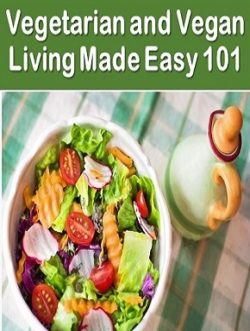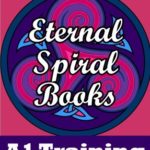Vegetarian and Vegan Living Made Easy 101

Many people are starting to become more interested in ‘clean eating’ and healthy eating. Becoming a vegetarian or vegan is one of the easiest ways to eat clean and improve your health provided that you understand the essentials regarding your nutritional needs and those of any family members you might be cooking for.
Many people dread trying to become vegetarian or vegan because even though they know it is a smart and healthy choice, they are worried it will take hours, be expensive, that they will have to buy organic all the time, or eat weird stuff. Even worse, what will they eat when they have to go out to various social events?
The truth is that vegetarian and vegan living can be easy once you know how. This course will teach you the basics, and has been created by a person who has been vegetarian for more than 25 years and vegan for 5. Get the insider tips, tricks and recipes you need to start eating more vegetarian and vegan meals and improving your healthy naturally.
TO REGISTER:
To start studying this course, click on the button on the right, BUY NOW, to pay for the course. You will be asked to create a user name and password for this site. Once you have set up your free account, you can buy any course on the site. Pay via PayPal or any credit card.
Once you have paid, return to this course page. Instead of the BUY NOW button, you will see a “Start the Course” button instead. Click on it to start studying now.
Note: You may have to REFRESH the page for the button to update.
Navigate though the course through hitting the buttons at the bottom of each lesson to move forward, or use the clickable table of contents that will appear once you start the course to move up and down to the different sections if you wish.
The path to vegetarianism and veganism is different for each person. In some cases, they might decide they want to eat clean and get healthy. In other cases, there are ethical considerations, such as not wanting to slaughter animals, or support the appalling conditions animals are kept in at ‘factory farms’. They might have heard that eating less meat can have a significant impact on the environment, conserving many gallons of water and other natural resources because the cost and impact of cattle herding, for example, is so enormous. Or they might come to it for religious reasons, such as becoming a Buddhist or Hindu, or seeking to fast for Lent, for instance, and give up red meat.
No matter what the reason, organization and planning ahead are key to a happy and healthier lifestyle. It can also be a life-long learning process. So let’s get started with the basics. Meet your instructor, discover how she became vegetarian, and download your course materials so you can make the most of the lessons.
Carolyn Stone has been a vegetarian since 1985. She is a professional health writer who has written more than 100 health and wellness guides.
Mara Michaels is the co-author of many of Carolyn’s cookbooks on healthy eating and has also been vegetarian for about 12 years.

